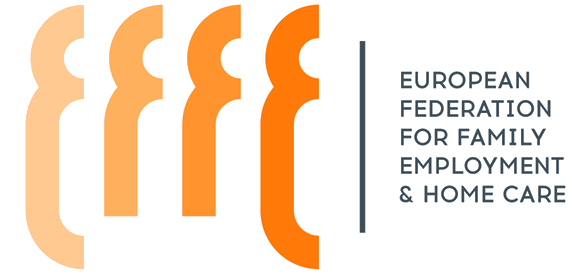
Presented on March 6 in Brussels after two years of work in collaboration with several civil society actors, the European White Paper has widely benefited from the support of the conference’s speakers, each of them praising the document proposals’ quality to strengthen social Europe. Let’s take a look back on the day’s most memorable parts and political commitments – most embodied by the signature of our Call for action by attending MEPs.
The EU Commissioner for Digital Economy and Society Mariya Gabriel highlighted the importance of digital tools in the process of recognizing home employment jobs as well as the highest necessity of “technologies serving human beings and not the other way around”. According to her words, “home employment sector can deliver innovative responses and is very important from an economic and social point-of-view“. She recalled her support to a higher visibility of the sector and to the “development of the digital skills for both service providers and recipients“, which she said would favor the emergence of a so-far largely undeclared sector and would help “demand and supply match and offer help and homecare to people in need for it“. It would also profit States’ public treasury as the extension of social rights to workers previously deprived from it would ensure more subsidies for social security organizations.
MEP Brando Benifei (S&D, Italy) outlined home employment as the main professional activity of a very large number of workers in the European Union and that “adapting trainings and professional qualification monitoring” would ensure greater recognition and greater appreciation of a sometimes disparaged sector.
MEP Sofia Ribeiro (EPP, Portugal) said that professionalization was an essential key to fight “domestic workers’ stigmatization” and to ensure qualitative care for the most vulnerable. She further pointed out that the development of vocational training in the home employment sector would be a potential solution to the “public health facilities’ overcharge, with regard to the soaring number of people in need for care expected for the next fifty years”. She urged European actors to take up the issue in the frame of next May’s European elections.
Elisabeth Morin-Chartier (EPP, France) stressed the importance of supporting home employment and of “protecting it through social dialogue and professionalization – for these jobs must be recognized. By so doing they will gain existence on the labor market“.
Regardless of their political inclination or nationality, representatives of the European institutions commonly agreed on the paramount importance of professionalization and the virtues it would bring both to home employers and employees. Also to be mentioned, a whole economic and social sector including public health and employment issues that the European Union will have to tackle in the next decade.
Share
A social Europe that works for every home